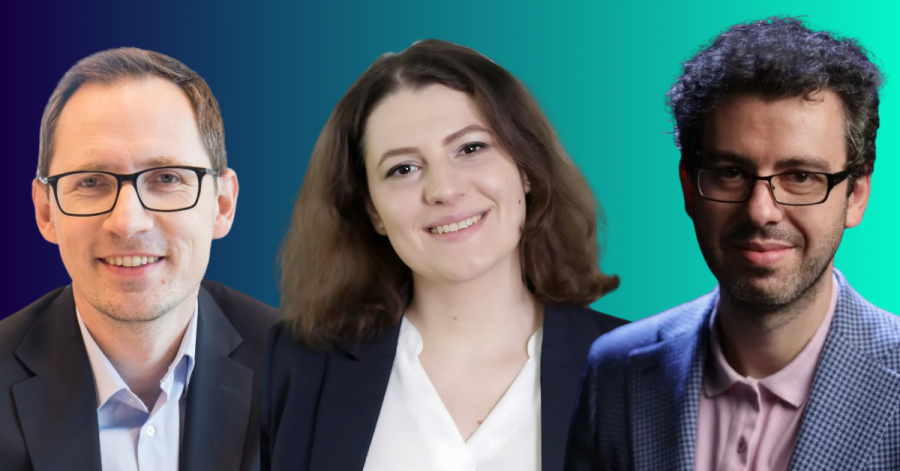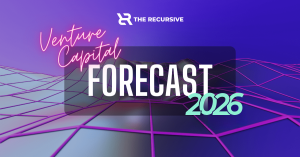Once spring has arrived, it looks like not only the flowers are set to blossom, but also Romania’s innovation. The government and organizations across the country are taking extra steps in boosting the country’s technological and research capabilities and announced, this month, the launch of three initiatives: Romanian Artificial Intelligence Hub (HRIA), FreeYa Mind Campus, and the EIT Community RIS Hub.
These projects, distinct yet with the same objective, focus on advancing AI research, cultivating quantum and tech talent, and linking local innovators to European networks. Together, they signal Romania’s intent to support the development of technologies which will wear the mark “Made in Romania”.
Here’s a closer look at each initiative, how they roll, and why they’re a big deal for the country’s future.
The Romanian Artificial Intelligence Hub
The Romanian Artificial Intelligence Hub (HRIA) is a €65.25 million, five-year endeavor coordinated by Politehnica University of Bucharest. The project unites six other of Romania’s top universities—Technical University of Cluj-Napoca, West University of Timișoara, Gheorghe Asachi Technical University of Iași, Politehnica University of Timișoara, University of Bucharest, and Babeș-Bolyai University in Cluj-Napoca—with seven innovative small and medium enterprises. Together, they aim to create a robust research ecosystem for artificial intelligence, delivering both fundamental and applied advancements.
HRIA’s mission is clear: to foster a collaborative platform that bridges academia and industry, producing open-source AI models tailored to Romanian needs.
Traian Rebedea, a professor at Politehnica University of Bucharest involved in the project, explains:
“This is a research project where we need to deliver results in both fundamental and applied research across various fields: Natural Language Processing, Computer Vision, and fundamental Machine Learning.”
He emphasizes the focus on developing competitive, Romanian-language models that can run on local GPUs, making them accessible to startups and businesses alike.
“The goal of the project is to ensure the necessary resources to advance research in both startups and large companies in Romania, “ he says.
With a budget covering researcher salaries, hardware like GPUs and robots, and infrastructure, HRIA targets practical applications in sectors such as finance, legal, healthcare, security, smart cities, and others. Mihnea Costoiu, Rector of Politehnica University, hails it as a milestone: “After more than four years of intense work and preparation, we have made a significant step for Romania in the field of Artificial Intelligence!”
The hope is that, by 2029, HRIA evolves into an independent entity, attracting private sponsorships and sustaining Romania’s AI momentum.
“What I hope will happen is that this AI hub will evolve into an independent entity, capable of collaborating with and receiving sponsorships from large private companies, similar to Bulgaria’s INSAIT, and maintain continuous collaboration with startups and big companies,” explains Rebedea.
FreeYa Mind Campus
Set to open by the end of 2026, FreeYa Mind Campus in Iași is all about raising the next wave of tech minds.
This initiative, tied to an IBM Quantum Innovation Center, offers students access to IBM’s quantum systems over the cloud, alongside advanced labs and corporate integration points. Targeting ambitious students in quantum technologies, AI, and computer science—from high school to PhD levels—the campus aims to cultivate a skilled workforce ready to tackle emerging fields.
Cornel Scripcă, co-founder of FreeYa Mind Campus, tells us more:
“Research at FreeYa Mind Campus will focus on quantum technologies, artificial intelligence, and other emerging fields. We are building a strong partnership network with IBM, international institutions, and industry leaders.”
The campus collaborates initially with five universities in Iași (“Alexandru Ioan Cuza” University, “Gr. T. Popa” University of Medicine and Pharmacy, “Gheorghe Asachi” Technical University, University of Life Sciences, “George Enescu” University of Arts), with plans to expand nationwide.
The center will be open for students enrolled in a bachelor’s, master’s, or PhD program in a relevant discipline. In addition to academic background, qualities such as passion for research, innovation, and technological advancement will be assessed. Once everything is ready, applications will be submitted through a dedicated online platform, where students will upload required documents such as a CV, a letter of motivation, and academic recommendations. FreeYa Mind is also expanding its recruitment to include high school students studying foundational quantum-related disciplines such as physics, mathematics, and information technology.
EIT Community RIS Hub
The EIT Community RIS Hub in Romania, backed by the European Institute of Innovation and Technology (EIT), serves as a bridge between local innovators and Europe’s vast resources. Operating within the EIT’s Knowledge and Innovation Communities (KICs), the hub connects startups, researchers, and industry leaders to funding, mentorship, and market opportunities. In 2022 alone, Romania received €3.41 million in EIT grants, a figure set to grow as the hub amplifies its impact.
Silvia Ursu, EIT Community Officer Romania, describes it as a vital resource.
“EIT Community Hub Romania is the one-stop shop for understanding the complex ecosystem and opportunities of EIT—the largest EU innovation ecosystem.”
The Hub offers tailored support, from equity-free funding and business incubation to skills training and visibility, targeting sectors like health, energy, and digital technology. By linking Romanian SMEs and startups to a Europe-wide network, it aims to boost global competitiveness and attract international investment.
How these initiatives work together for the same goal
These initiatives can be a big step for Romania’s tech scene, and if executed well, Romania can be known as an important player in AI, quantum technologies, and innovation.
The Romanian Artificial Intelligence Hub (HRIA) will create a strong research network, focusing on AI solutions that meet local needs. By bringing together universities, SMEs, and research centers, HRIA will help Romania’s startups and corporations stay competitive in AI and develop products that attract investment.
FreeYa Mind Campus will train the next generation of tech talent by giving students access to advanced tools and research in AI and quantum technologies. This will help ensure Romania has the skilled workforce needed for emerging tech fields. This will also greatly benefit Romania’s private sector and beyond.
The EIT Community RIS Hub connects Romanian innovators with Europe’s larger innovation network, offering funding and mentoring to help local startups grow internationally.
Together, these projects could significantly boost Romania’s tech landscape, driving innovation and creating new opportunities for growth in the country’s tech sector.








